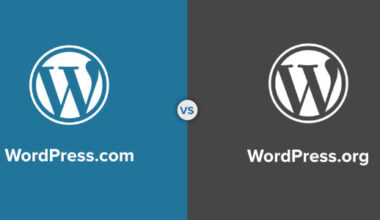WordPress is a powerful and versatile content management system (CMS) that has revolutionized the way websites are built and managed. Initially launched as a simple blogging platform, WordPress has grown into a comprehensive tool that powers over 40% of all websites on the internet. Its popularity is due to its user-friendly interface, extensive customization options, and a vibrant community of developers and users.
History and Evolution of WordPress
WordPress was created by Matt Mullenweg and Mike Little and first released on May 27, 2003. Initially designed as a blogging platform, it has evolved into a full-fledged CMS capable of handling various types of websites. Over the years, WordPress has seen numerous updates and improvements, including the introduction of the Gutenberg editor, which has made content creation even more intuitive.
WordPress.com vs WordPress.org
Many people are confused about the difference between WordPress.com and WordPress.org. WordPress.com is a hosted platform where WordPress takes care of all the hosting and maintenance. It’s great for beginners who want to focus solely on content creation. On the other hand, WordPress.org is a self-hosted version where users have complete control over their website, including customization and plugin installation. While WordPress.com offers ease of use, WordPress.org provides greater flexibility and control.
Key Features of WordPress
WordPress is renowned for its user-friendly interface, making it accessible even for those with little technical knowledge. One of its standout features is the extensive library of themes and plugins. Themes allow users to change the look and feel of their website effortlessly, while plugins add extra functionality. Additionally, WordPress is designed with SEO in mind, providing built-in features that help websites rank higher in search engine results. Its customization options and flexibility make it suitable for various types of websites, from blogs to e-commerce stores.
Benefits of Using WordPress
Using WordPress comes with numerous benefits. Firstly, it is incredibly easy to use, with a straightforward interface that simplifies website management. It is also cost-effective, as the core software is free, and many themes and plugins are available at no cost. WordPress is SEO-friendly, which helps in improving the visibility of your website. The community support and vast resources available, such as forums, tutorials, and plugins, make it easier for users to get assistance and enhance their websites.
How to Get Started with WordPress
Starting with WordPress is simple. Begin by choosing a domain name and a hosting provider. After setting up your hosting, you can install WordPress with just a few clicks. Once installed, you can select a theme that suits your style and customize it to fit your needs. Installing essential plugins, such as those for SEO, security, and performance, will enhance your website’s functionality. WordPress makes the setup process smooth, allowing you to launch your site quickly.
Common Use Cases for WordPress
WordPress is incredibly versatile and can be used for various purposes. It is perfect for personal blogs and portfolios, allowing individuals to showcase their work. Businesses use WordPress to create professional websites that highlight their services and products. E-commerce stores benefit from plugins like WooCommerce, which turn a WordPress site into a fully functional online store. Membership sites, news websites, and magazines also leverage WordPress’s powerful features to engage their audiences.
Advanced WordPress Features
For those looking to delve deeper, WordPress offers advanced features such as custom post types and fields, which enable more complex content structures. It integrates seamlessly with third-party tools, allowing for enhanced functionality. WordPress’s multisite capabilities are ideal for managing multiple websites from a single dashboard. Security is a top priority, and WordPress offers numerous features and best practices to protect your site from threats.
Future of WordPress
The future of WordPress is bright, with ongoing development and updates ensuring it remains a top choice for website creation. The Gutenberg editor represents a significant shift towards a more flexible and user-friendly content creation experience. As the digital landscape evolves, WordPress continues to innovate, embracing new technologies and trends to provide users with the best tools for building and managing websites.
Conclusion
WordPress is a versatile and powerful CMS that caters to a wide range of website needs. Whether you’re a beginner or an experienced developer, WordPress offers the tools and flexibility to create and manage a successful website. Its user-friendly interface, extensive customization options, and strong community support make it an excellent choice for anyone looking to establish an online presence. Explore WordPress today and discover how it can help you achieve your website goals.

